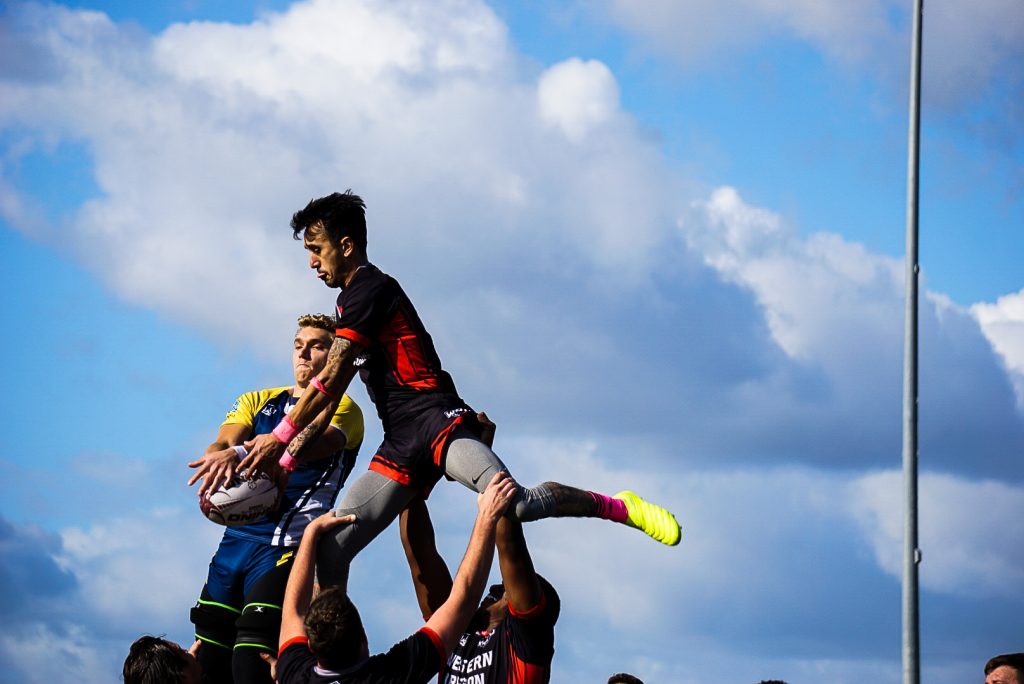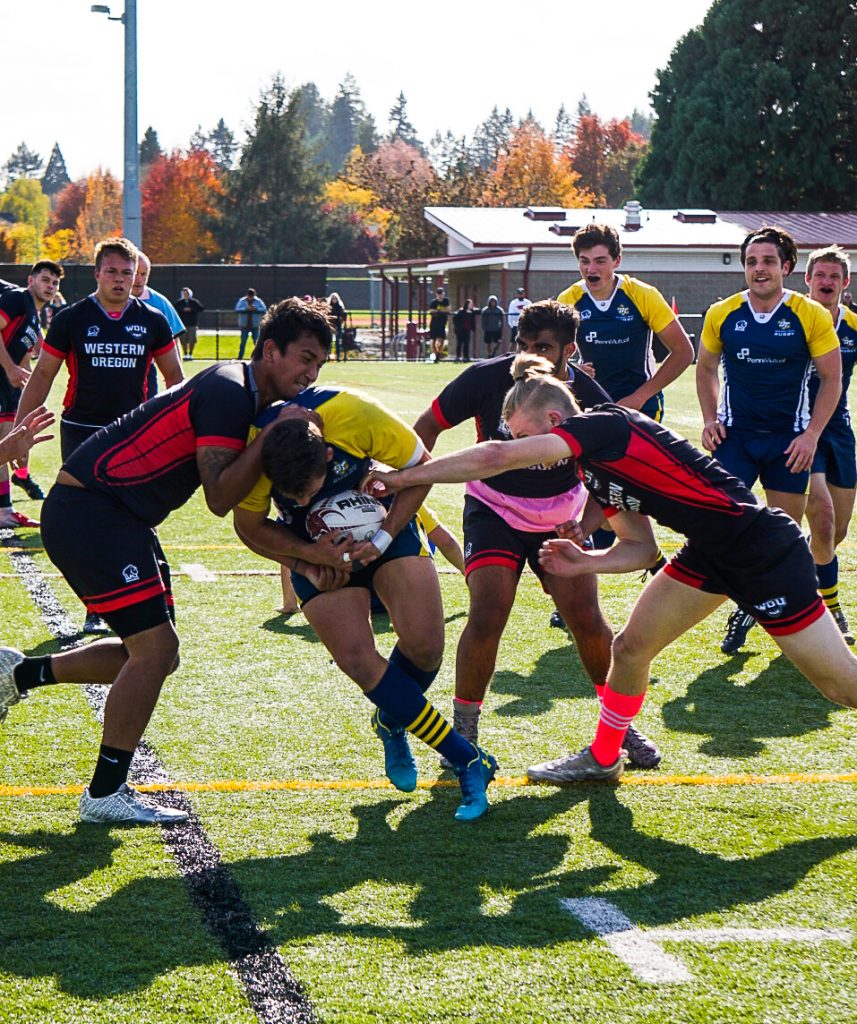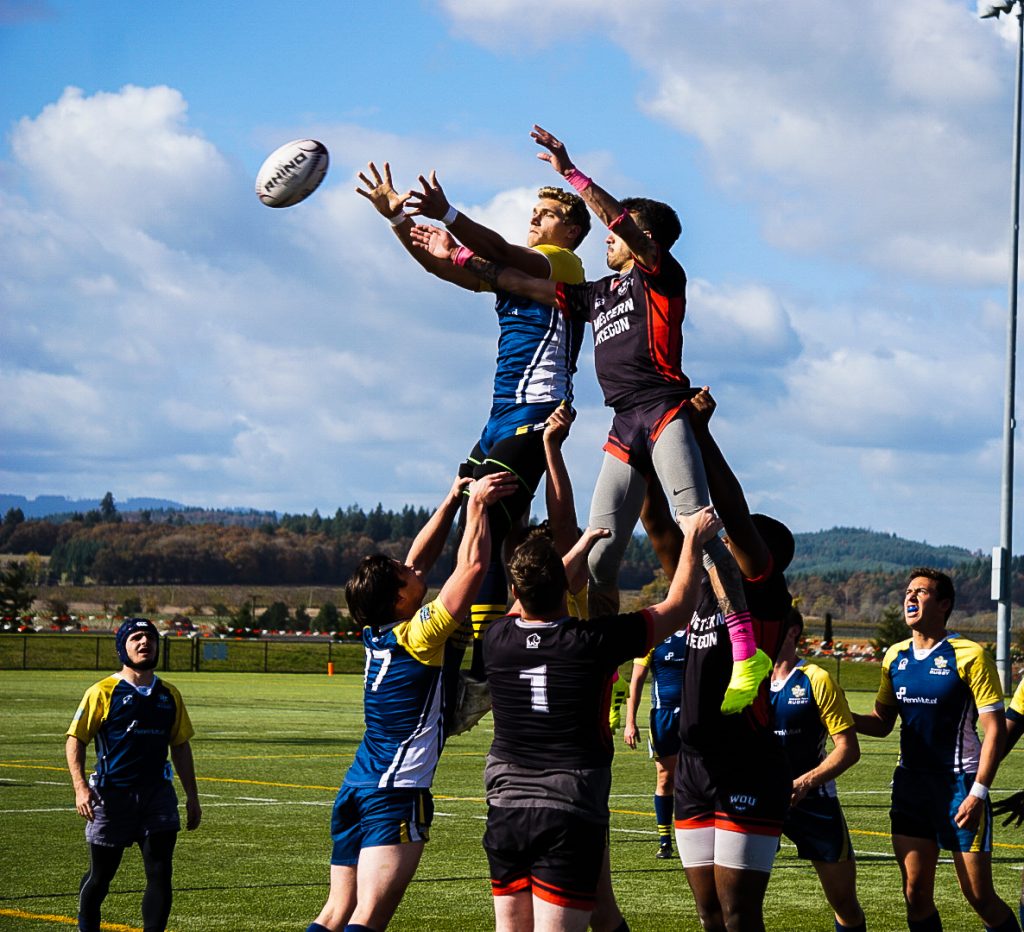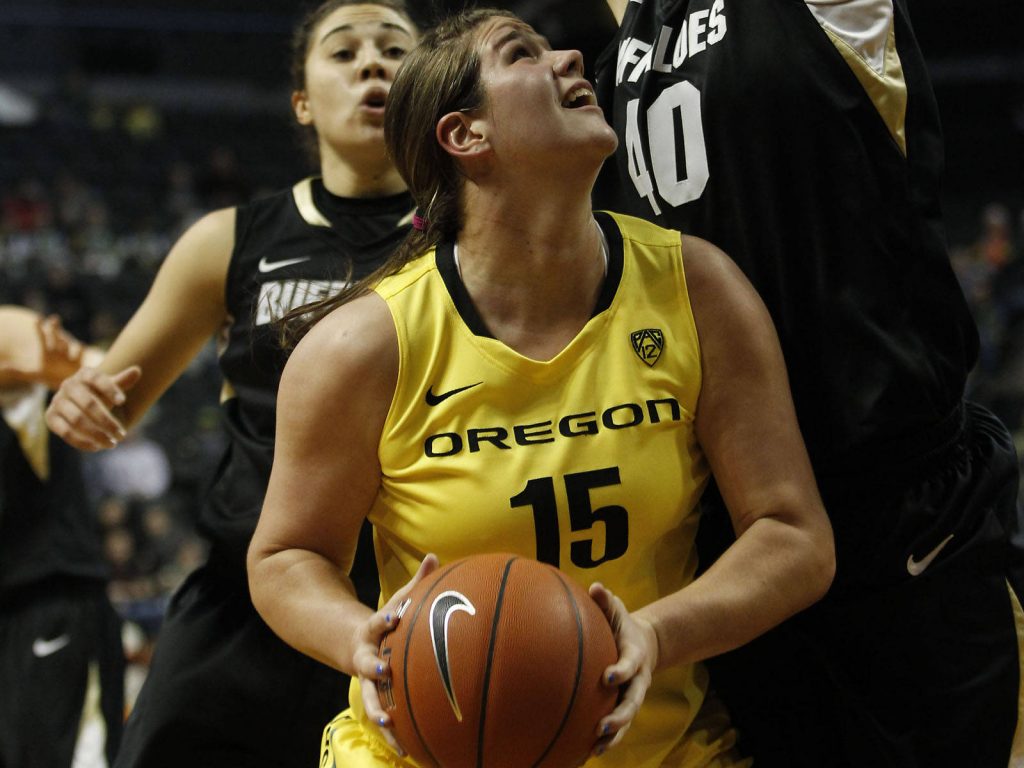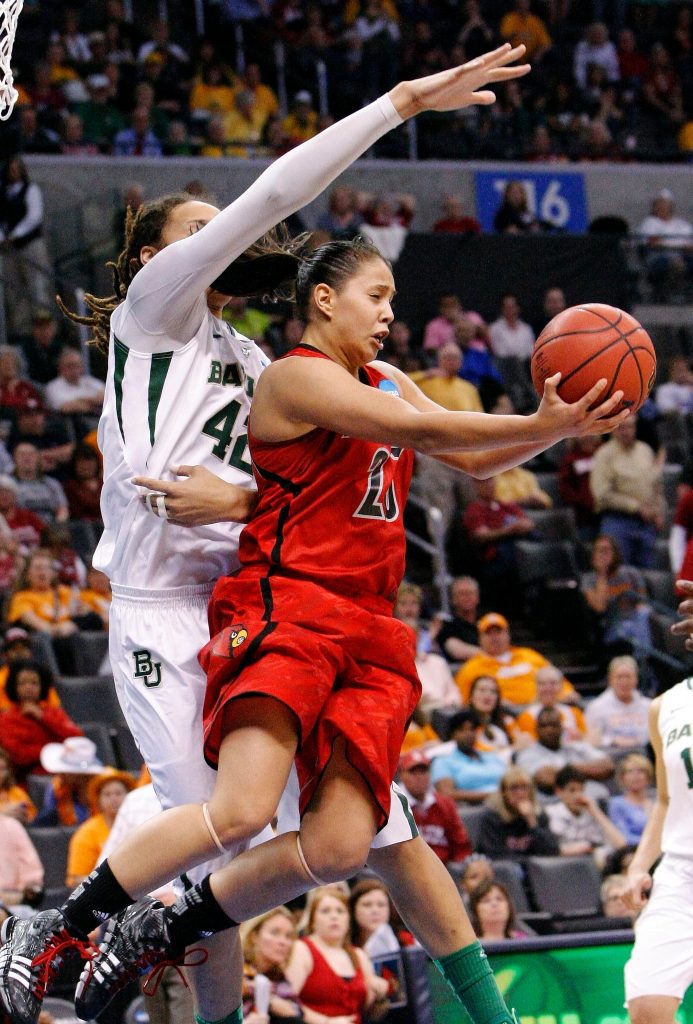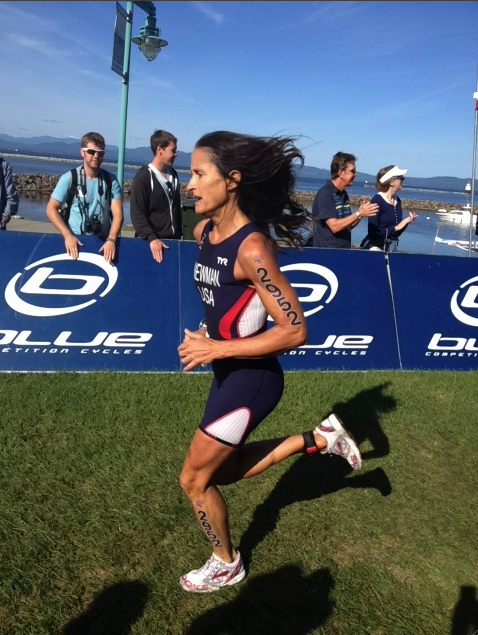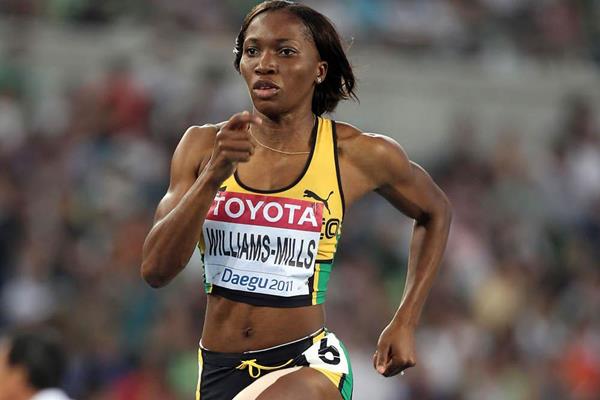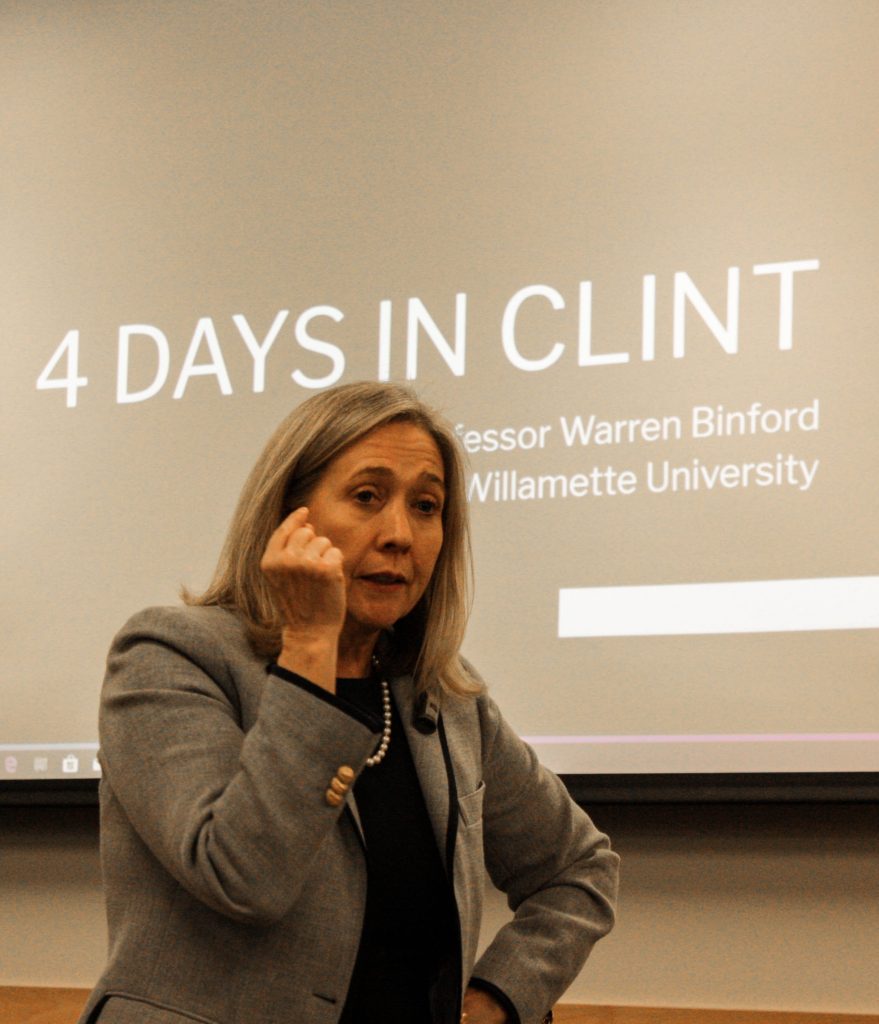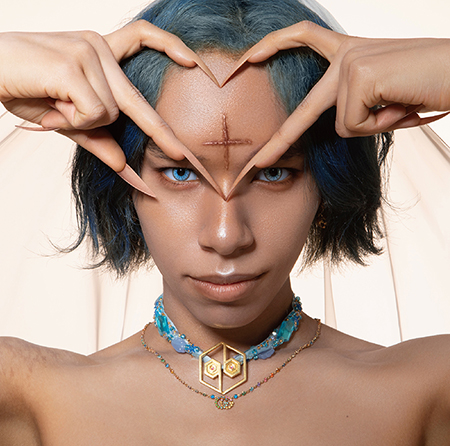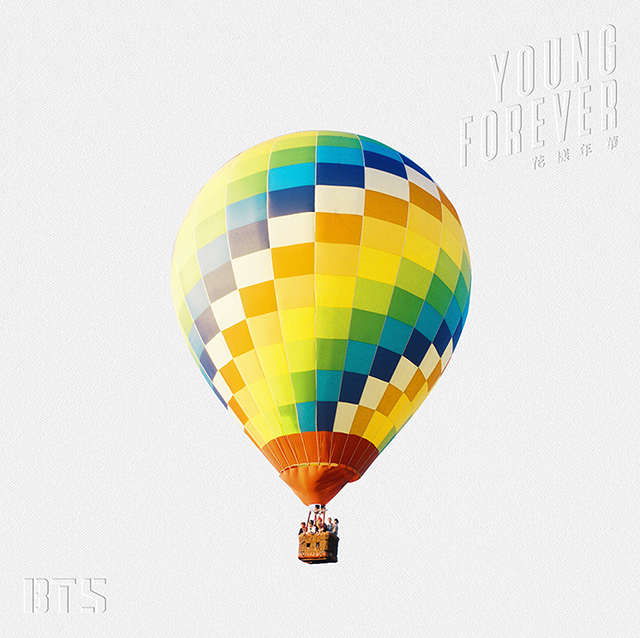
Sage Kiernan-Sherrow | News Editor
Editor’s note: Content warning —
“The most painful thing you can do to a kid is separate them from the adult who cares for them,” said Willamette University Law Professor Warren Binford regarding the current United States Border crisis. Professor Binford was a member of a team who interviewed over 70 children currently being held at the U.S. border. She is a children’s law expert with a Masters with distinction in Education from Boston University and a Law degree from Harvard, and has been interviewed by various media outlets including CNN and PBS.
On Wednesday, Oct. 23, Professor Binford was hosted by Western’s Model United Nations and the Salem United Nations Association to present a talk titled “4 Days in Clint,” which offered insight into the history of border control, included her accounts of the facilities detaining children separated from their loved ones, and proposed actions to increase awareness and support.
Those in attendance were given postcards with direct quotes from children and mothers of children who are being detained at the border. Binford began by inviting the audience to read those quotes aloud. “We slept on a cement bench,” one quote read, pertaining to the conditions of the facility.
A room full of people sitting on padded seats listened while Binford said, “I wish that the quotes you read today were the exception, but the fact is that all along the southern border there are children who can testify to being treated the way that you just heard.” She then continued by explaining that the government has been involved in various child immigration issues since 1985, when the government would hold children as bait to try to get their parents who had illegally immigrated to reveal themselves by rescuing them.
That prompted a 12-year fight for the children, which ended in the Flores Settlement Agreement of 1997 which granted children certain rights, primarily that children were to be provided with appropriate care and that they would be released first to their parents, then to another family member, another adult authorized by the family, and finally into foster care when there was no other alternative. 80% of the children in custody belonged to the first three categories at the time of the settlement passing.
However, Binford stated that it was “the Executive branch’s responsibility to implement those rights as regulations, but guess what happened? They never were promulgated, until just last summer.”
Binford also recounted the government’s verifiable entanglement in politics in the Northern Triangle, which represents the countries Honduras, El Salvedor and Guatemala, and how the U.S government’s conflict of interest in capital issues and ulterior motives to inhibit socialism from developing actually caused an influx in immigration.
“We have been involved in Central American politics actively for 70 years and we know it,” said Binford. Families fleeing the gang violence caused by U.S. interference must travel over 1800 miles from the Northern Triangle to the border. During that journey, over 70% of girls report sexual assault, however this is a risk many are willing to take to escape the horrors of their homeland. Binford asserted, “generally, people don’t leave home unless they really have to.”
The U.S. government saw this influx in immigration and decided to come up with a plan that would deter families from crossing the border, which is why family separation has escalated into a crisis in 2019, Binford explained. However, “Research shows that if you want to deter migration, you don’t come down with strict migration policies, because that can actually increase migration … because people think … ‘this might be our last chance.’”
In 2017, when the government was first piloting family separation, Binford was a part of a team sent to inspect various border control facilities and assess their quality of care, and what she found was appalling. Despite the fact that border control standards maintain that they are only allowed to hold children for up to 72 hours, and the 20 days standard set by the Flores agreement, children were being held for months on end and separated from their families even in cases where the facility had the capacity to keep them together. In order to separate the family, mothers were told that they were “doing this to protect the child from trauma” regarding seeing the mother go through the court process.
“Another mother talked about the fact that they told her they were taking her child away to give him a shower. I want you to think about that. I want you to think about the history of telling parents that they are giving their children showers, and the fact that U.S. government officials would say that,” said Binford.
The children are being kept in abandoned military bases, or places like “The Walmart,” a previous Walmart superstore maintained by a non-profit called Southwest Key Programs and operated by a man called “Father Juan.” Father Juan, Binford stated, is an attorney from Harvard who is participating in the active displacement of children’s faith, culture, and language through acts such as separating indigenous children from each other, and having fundamentalist Christians teach the faith to a group of majority Catholic kids.
Binford said, “we realized there is a type of cultural genocide going on in these facilities.” One wall of “The Walmart” is covered by “Juan-dollar bills,” which act as employee rewards for following “Father Juan’s” orders, and there is a mural dedicated to Donald Trump under which reads “sometimes, you have to lose the battle to win the war.”
Clint, on the other hand, is a tiny facility approved for 100 adults but currently holding 351 kids representing a range of ages. While Binford and her team were not able to inspect the facility itself, they were able to speak to the kids.
“Many of them were sick, there was a lice outbreak, they were not being fed, they were not being given showers, they didn’t have soap, and most importantly, there was nobody taking care of them,” Binford said. The guards would make the older kids take care of the younger ones, but with no prior experience in doing so, they were disadvantaged. What’s equally as problematic, Binford said, is that this is being paid for by taxpayers dollars.
“If you don’t want to believe that what we are doing is wrong ethically, then at least acknowledge that it’s a stupid thing to do financially.”
To conclude her presentation, Binford encouraged the public to take action through education, donation, engaging in conversation with legislatures, taking part in short-term fostering situations and most importantly, keeping the focus on telling the kid’s’ stories through art and through sites like amplifythechildren.org.
“We don’t want them to whitewash the history and the brutality that these kids are experiencing,” Binford urged.
At the very end of the talk, songwriter Kirsten Granger and guitarist Dan Wenzel of the band “True North” were invited to perform a song written on behalf of the children, in which the final verse conveyed, “abuelos hate to see us suffer, they’re out searching for our mothers, and they’ll bring our mothers soon.”
Contact the author at howlnews@wou.edu
Photos by Sage Kiernan-Sherrow
